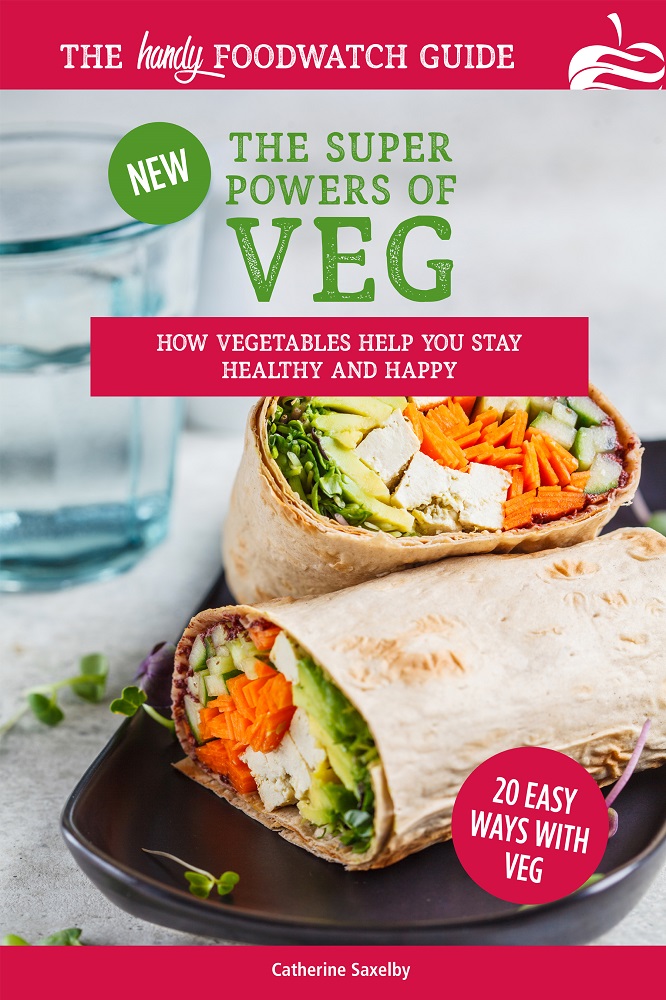- Home
- Blog
- Healthy Eating for Wellness
- Organic vegetables – your questions answered
Organic vegetables – your questions answered
Written by Catherine Saxelby
on Tuesday, 09 November 2021.
Tagged: health, healthy eating, nutrition
Q. Should I only buy organic vegetables?
A. No. Most people don’t eat enough vegetables – organic or non-organic. People don’t need a barrier to eating fresh vegetables. The benefits of eating these excellent whole foods far, far outweigh any risk of pesticide harm.
Organic vegetables are grown without using synthetic pesticides, herbicides, sewage sludge or genetically modified organisms (GMOs). They are also water efficient and good for biodiversity.
Compared to industrially produced vegetables, organic vegetables are better for the environment, which is their big advantage. Where factory farming has shrunk our supermarket choices to one or two varieties of produce, organic farmers are resurrecting heirloom varieties.
Unfortunately, organic food is still more expensive (although the price is continually dropping) and, in some areas, it’s difficult to obtain.
Q. What I should I look for when buying organic?
A. Don’t just buy anything labelled ‘organic’. Look for the logo of one of the five major organic organisations. This acts as a guarantee that the producer’s farms are inspected at least once a year, along with random audits. In Australia, these organisations are:
- Australian Certified Organic (ACO)
- Aus-Qual
- Bio-Dynamic Research Institute (BDRI, or Demeter)
- National Association of Sustainable Agriculture Australia (NASAA)
- Organic Food Chain (OFC).
In Australia, food must contain a minimum of 95 per cent organic ingredients to be certified organic. In the USA, look for any program regulated by the US Department of Agriculture (USDA).
An extra note: The term ‘natural’ is essentially meaningless. Everything is natural, even toxic sprays and non-organic fare. Natural gets used a lot as a ‘greenwashing’ tactic. So steer clear of it!
Q. Are organic veggies more nutritious?
A. The research is inconclusive on whether it’s healthier to eat organic vegetables. Generally, studies show similar levels of vitamins and minerals in organic produce as in standard produce, although some studies suggest that organic produce has more minerals (if mineral-bearing rocks have been added to the soil) and sometimes more phyto-chemicals (because plants have to work hard to ward off pests that would otherwise eat them).
While organic vegetables may be free from (or lower in) pesticides, they are not necessarily higher in nutrients. Many people believe, however, that organic vegetables have a better flavour, even though they don’t always look as attractive and blemish-free as conventionally produced foods.
Australia’s own survey
Every year since 1992, the Department of Agriculture has carried out the National Residue Survey. The survey analyses the pesticide residue of ordinary local produce. It consistently shows that the vast majority of non-organic foods have no detectable chemical residue, and the few samples that do have trace residues are well within safety limits.
During 2019–20, for example, more than 15,000 samples of different fresh food types were analysed for a range of pesticide residues. For 99 per cent of samples, pesticide residues were either absent from or within the maximum limit. This is just good agricultural practice at work.
Vegetables least — and most — likely to contain pesticide residues
The lists below come from the 2021 US Environmental Working Group. Please note, the foods in these lists are not always translatable to Australia, because we use different herbicides and pesticides. We also set strict upper limits on residue usage and the minimum time between spraying a crop and harvesting it to minimise any impact.
Here are the vegetables found to contain the least amount of pesticides (listed in the same order as on the US website):
- Asparagus
- Avocado
- Broccoli
- Cabbage
- Cauliflower
- Eggplant (aubergine)
- Frozen green peas
- Mushrooms
- Onions
- Sweetcorn
Some of this non-organic produce has such low levels of pesticides, it’s comparable to organic.
Here is the list of the 12 most contaminated produce in the USA, known as the ‘Dirty Dozen’. Where you can, buy organic versions of these fruit and vegetables to avoid pesticides:
- Strawberries
- Spinach
- A trio of greens – kale, collard and mustard
- Nectarines
- Apples
- Grapes
- Cherries
- Peaches
- Pears
- Hot and bell peppers (capsicums)
- Celery
- Tomatoes
The bottom line
You don’t have to buy organic to eat a nutritious diet. Because Australia’s standard produce is low in residues, if you buy regular vegetables, you’ll still be eating well. Try to eat a wide variety of produce – and don’t forget about washing or peeling your produce – to minimise the likelihood of residues.
Related links / External websites
This post was first published in my book, The Super Powers of Veg, out in October 2021. You can access it here.

Foodwatch
The Good Stuff
The Boring Stuff
© 2025 Foodwatch Australia. All rights reserved
Website by Joomstore eCommerce






